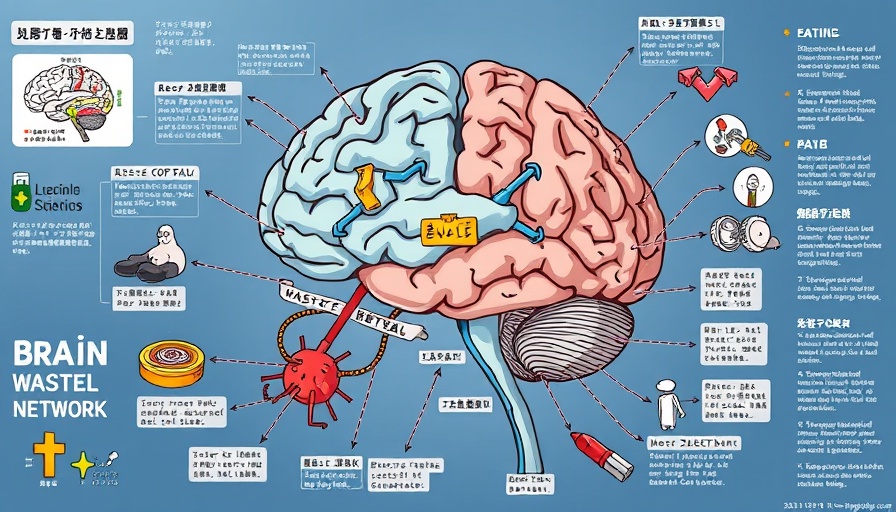
The Brain’s Hidden Network: A Waste Disposal Marvel
The brain is not just a hub of complex thoughts and emotions; it also harbors an intricate 'waste disposal network' that has been largely misunderstood until now. A recent groundbreaking study from the Institute of Neuroscience, led by Dr. Du Jiulin, sheds light on how neural activity shapes the meningeal lymphatic system. This system plays a crucial role in maintaining homeostasis by clearing metabolic waste and transporting immune cells, and its development is intricately linked to the brain's own neural activity.
Understanding the Role of Neural Activity
Neural activity influences the brain’s waste disposal network significantly. The researchers employed in vivo long-term imaging in zebrafish combined with genetic manipulations and neural activity studies. The findings are striking: stimulating neural activity—through visual stimulation, for example—leads to an increase in mural lymphatic endothelial cells (muLECs), essential for the lymphatic system's function. Conversely, depriving these activities resulted in a notable decrease in muLEC count. This correlation underlines the brain's adaptability based on its functional needs.
The Critical Role of Vegfc in Lymphatic Development
One of the critical factors identified in this study is Vegfc, which is necessary for lymphatic system development. The research pinpointed a specific glial subpopulation known as slc6a11b+ RAs that expresses Vegfc. These cells play an indispensable role by extending processes to the brain surface, facilitating the distribution of Vegfc. Thus, alterations in the neural signaling mean that slc6a11b+ RAs can dramatically influence lymphatic development.
What Happens When Neural Activity is Impaired?
When neural activity is inhibited, the consequences can be dire. The study found that deletion or dysfunction of slc6a11b+ RAs impairs muLEC development. On the other hand, enhancing Vegfc signaling could promote better muLEC development. This aspect leads to important implications for understanding the brain's lymphatic system and why it is critical for immune system function and overall health.
The Cross-Tissue Collaboration at Play
Another fascinating element of this research is the interaction between different cellular types in the brain. The cross-tissue collaboration between slc6a11b+ RAs and ccbe1+ fibroblasts is pivotal for converting pro-Vegfc into its mature form. This synergy ensures that mature Vegfc is localized to the brain-meningeal interface. This regulatory mechanism prevents lymphatic endothelial cells from encroaching into the brain parenchyma, thereby safeguarding against potential immune disruptions that could occur from invading immune cells.
Implications for Health and Wellness
The findings from this study can have far-reaching implications for health and wellness, particularly in understanding how to maintain optimal brain health. The brain's ability to adapt its lymphatic network according to its needs could serve as a basis for developing targeted therapies for conditions related to lymphatic dysfunction, which include neurodegenerative diseases.
Future Outlook and Research Directions
As we explore the complexities of brain health further, this study offers a promising pathway for future research. Understanding how the brain tunes its lymphatic network may lead to innovative health solutions and better therapies for illnesses that adversely affect brain function.
Conclusion: A New Perspective on Brain Health
In conclusion, the role of the brain's waste disposal network is more significant than previously recognized. This research not only highlights the influence of neural activity on the lymphatic system's structure but also opens avenues for new therapies aimed at optimizing brain health. As we learn more about the interconnectedness of neural and glial cells, the field of health and wellness stands to benefit immensely. If you're interested in staying informed about breakthroughs in this area and how they may impact optimal health and wellness, consider exploring more on this topic.
 Add Row
Add Row  Add
Add 




 Add Row
Add Row  Add
Add 


Write A Comment